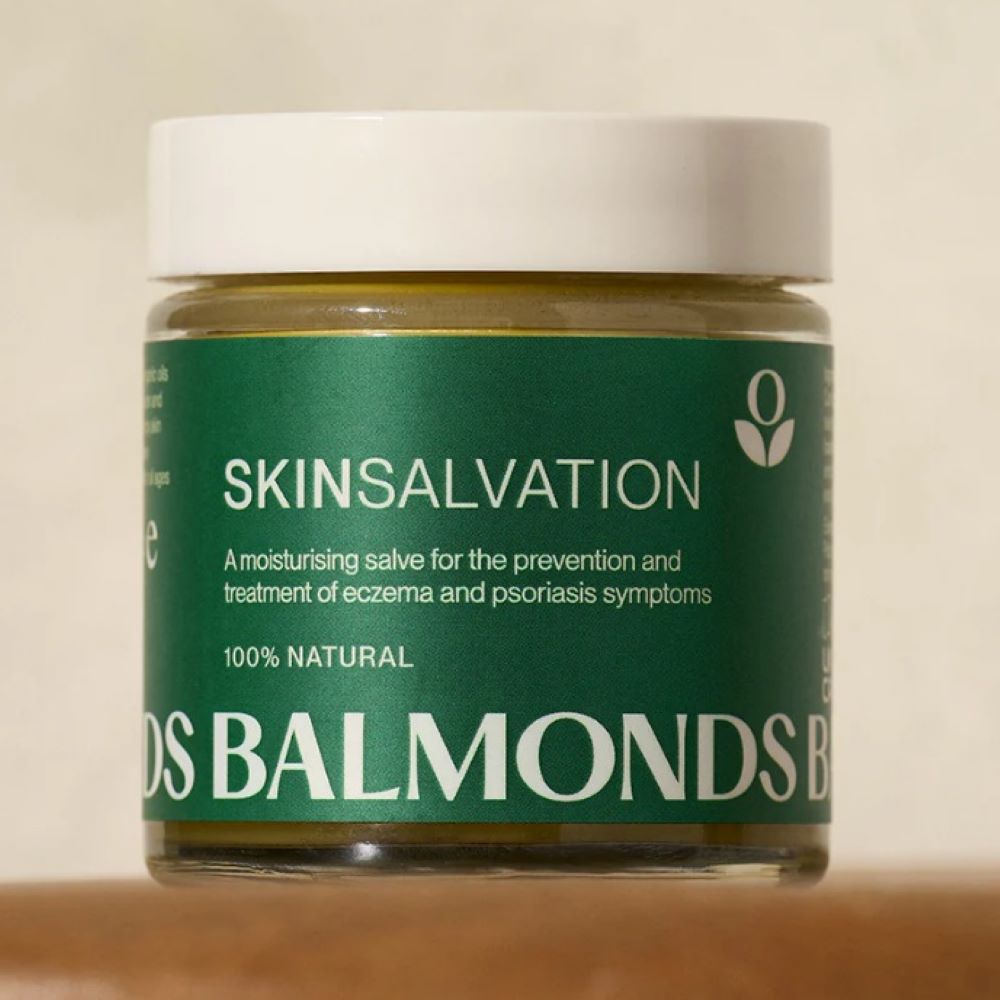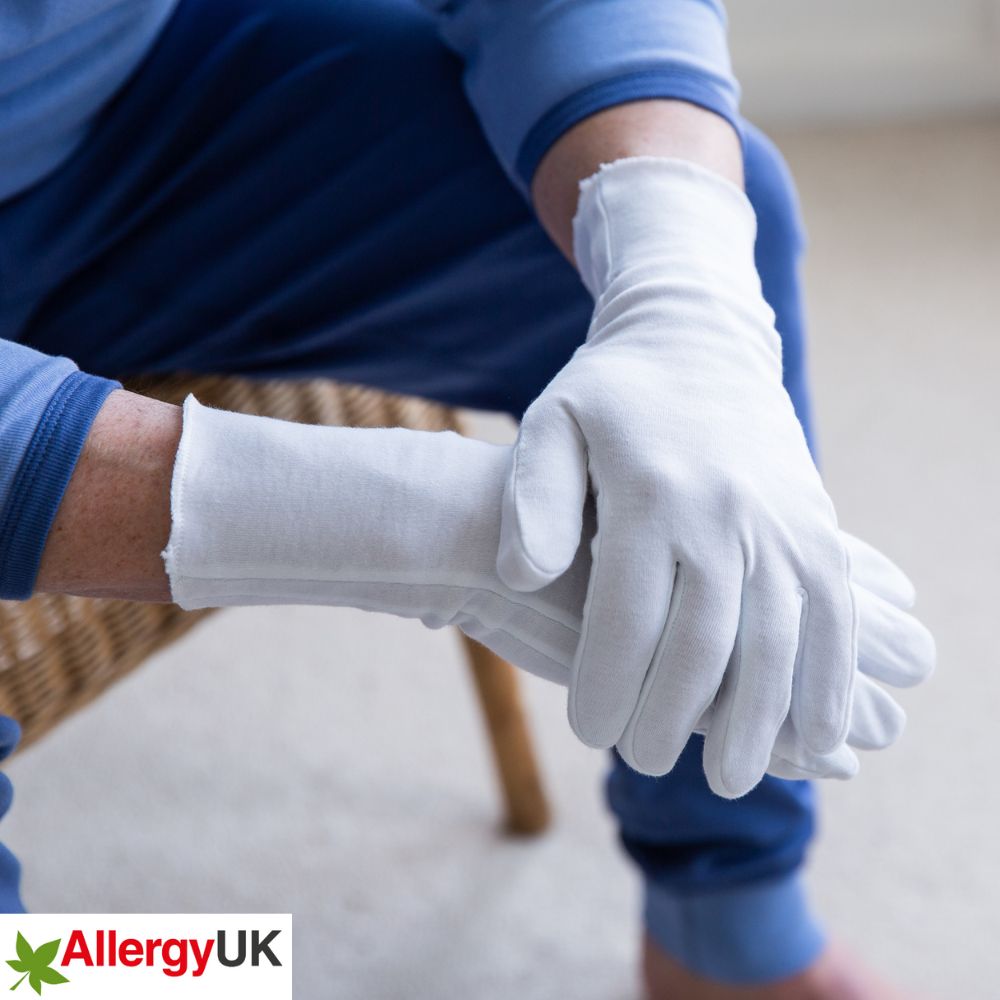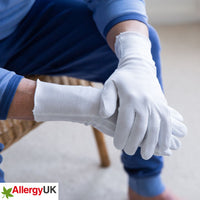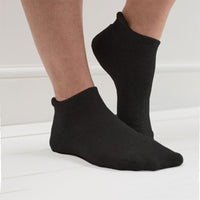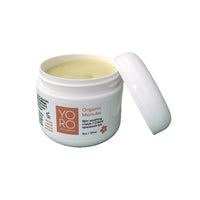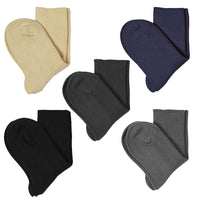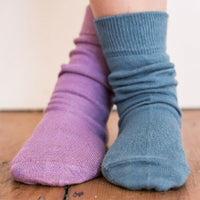
Why are natural fabrics good for sensitive skin and eczema?
Why are natural fabrics good for sensitive skin and eczema?
At Eczema Clothing, we have been pioneering the use of organic cotton for over 40 years, which is when we first designed our Cotton Mitten PJs to help children with itchy skin sleep better.

Now, we stock over 12 brands for adults and children, but we still believe in natural material, using primarily cotton in most of the garments that we sell. Like our friends at Pure Earth Collections, we know that natural fabrics can be beneficial to humans large and small, helping soothe, hydrate and protect our skin.

Generally, evidence suggests highly processed synthetic fabrics, as well as wool - even though it is natural - can aggravate sensitive skin. Wool can be coarse or very textured, which can rub against inflamed skin and its powerful heat retention properties can make it less breathable. It can also act as a trigger for people with allergies, a high proportion of whom also have some form of dermatitis.
These are the reasons we choose organic.
Reduced Chemical Exposure: Organic fabrics, such as organic cotton, are grown without the use of synthetic pesticides, herbicides, and genetically modified organisms (GMOs). This means that they are less likely to contain residual chemicals that can irritate sensitive skin. Conventional cotton farming often involves the use of pesticides and chemical fertilisers, which can leave traces on the fabric.
❌Hypoallergenic: Organic fabrics are less likely to trigger allergies or skin sensitivities because they are produced without the use of harsh chemicals. This makes them a preferable choice for people with conditions like eczema, as they are less likely to cause skin irritation.
💨Breathability: Organic fabrics tend to be more breathable than synthetic materials like polyester or nylon. This breathability allows air to circulate more freely around the skin, reducing the risk of heat and moisture build up, which can exacerbate eczema symptoms.
☁️Softness: Organic cotton and other organic materials are often praised for their softness. This can be particularly comforting for individuals with sensitive or irritated skin, as the fabric is less likely to chafe or cause friction.
💦Moisture Absorption: Organic cotton and bamboo have natural moisture-wicking properties, which can help keep the skin dry. This is especially important for eczema sufferers, as excess moisture can exacerbate their symptoms.
🌍Eco-Friendly: Organic farming practices are generally more sustainable and environmentally friendly. Choosing organic fabrics supports these practices and reduces the environmental impact associated with conventional cotton production, which can involve heavy pesticide and water use.
The best-known organic fabrics are organic cotton, silk and bamboo. These are all smooth fabrics that do not have harsh textile fibres, which can prickle sensitive skin and cause physical irritation.
Organic Cotton: has been the long-term fabric of choice for eczema sufferers. It's a natural fabric that already has softness and stretch, plus it’s durable and regains its shape on washing. Organic cotton has environmental benefits as its growing process uses far less water than standard cotton and has certifications (e.g., GOTS) ensure that no chemicals or harmful dyes are used. It is easy to care for and importantly for eczema sufferers, it can be washed at 60 degrees or higher, ensuring that all house dust mite allergen and residues of oil/cream and dead skin that have built the inside of clothing can be removed.
Silk: is also a natural fibre which can be produced without pesticides and fertilisers. It is best known for its strength and durability as well as its aesthetic appeal. Like cotton, it is soft as well as breathable and strong, as well as being able to absorb moisture. Wearing silk can feel luxurious, a well-earned daily pleasure if you're coping with sore skin.
Bamboo: is another fairly new textile which has rapidly grown in popularity. It is soft and lightweight with effective wicking and moisture absorbing properties that helps keep skin dry and cool. It also has hypoallergenic and antimicrobial properties. Bamboo is a plant that grows very quickly without using pesticides so is deemed to be an eco-friendly and sustainable fibre.
However as with creams and lotions, there is no one-size-fits-all solution. Everyone's skin reacts differently to different fabrics, especially when you factor in the variety of daily activities, such as exercising or sleeping, that can affect its response. Some people may still find certain organic fabrics irritating, so it's essential to pay attention to your specific skin needs and preferences when choosing clothing.

